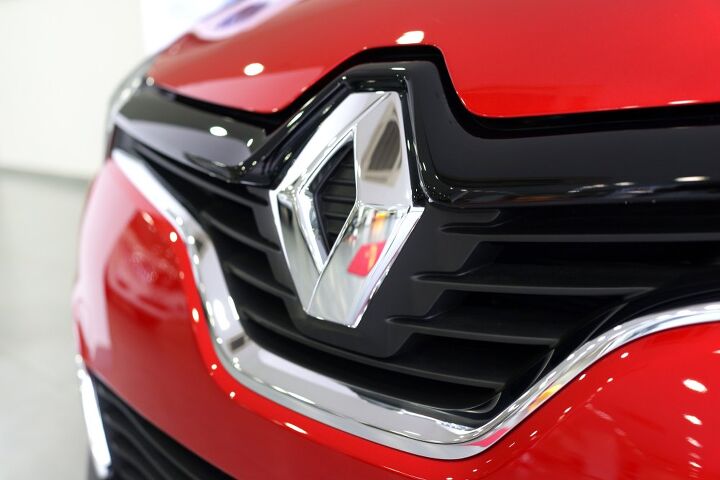Renault Makes Like Nissan, Cuts Future Production, Spending, Jobs

The same week that Nissan outlined a supposedly sustainable path forward, alliance partner Renault did the same thing, revealing a blueprint for a streamlined business and pared-down workforce in the years ahead.
Annual production will be cut, plants will be shuttered, and about 15,000 employees will be let go, the automaker said. The company’s problem was thinking too big, its interim CEO remarked — something Renault’s former boss might disagree with.
After a decade of Carlos Ghosn-fostered prosperity and sales, Renault’s fortunes hit the skids in 2019, with the company posting its first loss in a decade. The coronavirus pandemic, as it did with all other automakers, rocked the boat even more. The plan now is to go full triage, with the goal of freeing up $2.2 billion in savings over the next three years.
“We thought too big in terms of sales,” said Renault interim CEO Clotilde Delbos said, as reported by Reuters.
This was a realization Renault’s partner, Nissan, came to last year. For all alliance members, the going forward strategy is consolidation, with excess capacity and employees shed and each member focusing on their strengths in markets where it makes sense. The Ghosn era of chasing new markets (and market share) is officially dead and buried.
“The mindset has completely changed. The previous line was volumes and sales and being the first on the podium,” Delbos said. “We’re not looking to be on top of the world, what we want is a sustainable and profitable company.”
For Renault, the future means continued development of electric vehicle technology and European buyers. Production is slated to shrink from 4 million vehicles per year to 3.3 million in 2024. Plans for an expansion of manufacturing operations in Romania will be put on ice. Transmission production will be pared back. A harder pill to swallow for the French company, of which the French government holds a 15-percent stake, is the potential closure of domestic assembly plants. Six of the automaker’s 14 French plants are under review.
It’s possible that Renault’s new direction could even spell the end of the recently resurrected Alpine brand.
The automaker is apparently drawing close to a state loan, though the government won’t okay it until talks conclude with labor unions (who’ll want to retain as much French capacity and workforce as possible). These promise to be thorny discussions. In total, some 4,600 jobs could be cut in France, with CFDT — a union described as “moderate” — saying Friday, “This plan is unbalanced, at the expense of French activities.”
[Image: TY Lim/Shutterstock]

More by Steph Willems
Latest Car Reviews
Read moreLatest Product Reviews
Read moreRecent Comments
- Lou_BC Collective bargaining provides workers with the ability to counter a rather one-sided relationship. Let them exercise their democratic right to vote. I found it interesting that Conservative leaders were against unionization. The fear there stems from unions preferring left leaning political parties. Wouldn't a "populist" party favour unionization?
- Jrhurren I enjoyed this
- Jeff Corey, Thanks again for this series on the Eldorado.
- AZFelix If I ever buy a GM product, this will be the one.
- IBx1 Everyone in the working class (if you’re not in the obscenely wealthy capital class and you perform work for money you’re working class) should unionize.


































Comments
Join the conversation
I cannot believe them closing even a single factory in France. If they do that there will be another French revolution. And who is to blame it for? Macron and rich cronies. Or Big T. They can shut down any activities in Russia though, and Romania and forget about USA and China.
Much cheaper to keep production in Romania. Cost of living relatively low when compared to France and the workforce is well trained and with tradition in automotive manufacturing ( since late 60s). That's why the factory was bought by Renault. All those East European countries were allowed into the EU because initially they were a big market for West European products, and second, they all had a low and relatively well trained workforce. I was amazed how many automotive suppliers have factories there. Ex-USSR republics have even cheaper labor force but probably costs are the same as in other Eastern European countries given that they aren't in EU and any exports from those factories to the EU have duty.